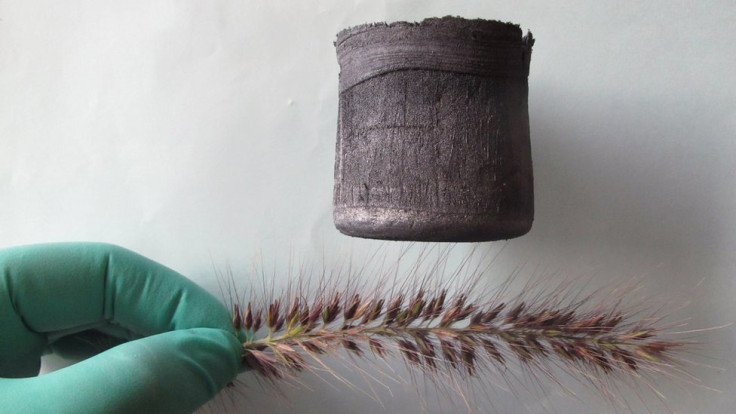Plane Passengers Could Be Given Parachutes Made From World's Lightest Material

A Chinese scientist who used nanotechnology to create carbon aerogel, the world's lightest material, says parachutes for aeroplane passengers could be made from it.
In March 2013, Professor Gao Chao and a team of researchers from Zhejiang University in China succeeded in developing the world's lightest material.
Carbon aerogel weighs just 0.16mg per cubic cm, which is lower than the density of helium, and the material can rest on a blade of grass without causing it to bend.
Due to its extremely light properties, Gao believes parachutes made from carbon aerogel could be used for aeroplanes, as one measuring 20 sq m with a thickness of 50cm would weigh less than 200g, the equivalent of the weight of a cotton T-shirt.
In fact, if a 300-seat Boeing 777 jet was fitted with aerogel parachutes for all passengers, they would only add 60kg to the aeroplane's estimated 300 tonne take-off weight.
Incredibly lightweight material
"Some manufacturers have contacted us to develop a new type of clothing with the technology," Gao told the South China Morning Post.
"I am optimistic that these technological constraints can be overcome. [As of now], the chance of [the material's application] is greater with the military."
The parachute could be helpful for the military, as troops could parachute into a location and take an enemy by surprise.
It could also be designed like an umbrella so a person could be wrapped warmly within it.
But it might take some time for the parachutes to be put on to aeroplanes as civilians would have to be trained in how to use them.
"In many accidents, the [aeroplane] crashed with all doors closed. So with or without a parachute wouldn't make any difference to passengers," said Gao.
"But if the plane disintegrated in mid-air, like if it were hit by a missile, the parachutes would give some passengers a chance of survival. Those with flight panic may also find mental relief by wearing a parachute throughout a flight."
© Copyright IBTimes 2025. All rights reserved.






















